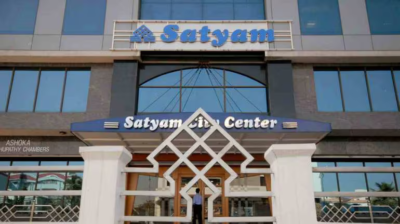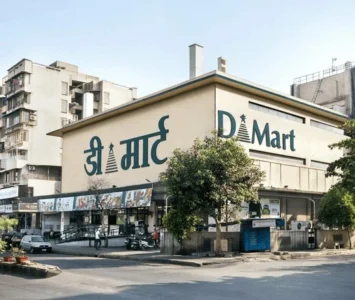The Early Days of Radhakishan Damani
Before big retail stores became popular and before everyone knew about D-Mart, there was a man who was quietly making money by watching carefully and waiting patiently. Radhakishan Damani, known today as one of India’s most reclusive billionaires, came from a simple background. He started his professional journey not as a retailer, but as a stock market investor in the 1980s and 90s.
Damani was never the flamboyant kind. In fact, he was known for his minimalistic lifestyle and quiet nature. But behind that simplicity was an incredibly sharp mind. He keenly studied consumer behavior, balance sheets, and company strategies long before it became mainstream among investors. His stint in the stock market wasn’t just about making money; it was about understanding businesses inside-out.
This experience gave him deep insights into how businesses succeed and fail. He closely watched the rise of modern retail in India and identified a gap while others chased scale and speed, he saw value in discipline, margins, and sustainability. And that’s when the idea of D-Mart began to form.
The Inspiration Behind D-Mart
In 2002, Damani opened the first D-Mart store in Powai, Mumbai. The model was simple: offer essential household goods at consistently low prices in a no-frills environment. Unlike other retail chains that emphasized aggressive marketing or premium in-store experiences, D-Mart focused on substance.
Damani’s inspiration came from watching both Indian retail mistakes and international successes. He closely followed Walmart’s philosophy of cost efficiency and consumer-first pricing. However, instead of replicating the Western model blindly, he built a uniquely Indian solution. He understood that Indian middle-class shoppers valued savings, convenience, and consistency over glamour.
Damani saw that consumers didn’t mind walking into a plain-looking store if it offered lower prices and good quality. He also understood the importance of trust, if a brand delivers value every time, customers won’t switch easily. This led to D-Mart’s defining promise: reliable prices and dependable products.
The Business Model and Operational Discipline
D-Mart’s way of doing business is based on five main pillars. Each one goes against what most people usually believe about running a store:
- Own the Stores, Don’t Rent
While most retailers lease their outlets, D-Mart prefers owning them outright. This might mean slower expansion, but it avoids rental hikes and gives better control over store design and operations. - Minimalist Store Design
You won’t find fancy décor or flashy signs at D-Mart. Stores are built to function efficiently, with low maintenance costs. No frills, just focus. - Inventory Turnover and Supplier Discipline
D-Mart’s ability to clear inventory quickly is legendary. Suppliers are paid on time; often earlier than required which earns trust and stronger vendor relationships. In return, D-Mart negotiates better margins. - Everyday Low Pricing (EDLP)
Instead of artificial discounts or “festival sales,” D-Mart maintains low prices every day. This builds consistency and loyal consumer behavior. - Lean Operations, Strong Financials
D-Mart is very careful with its money. It has little debt, keeps costs low, and makes strong profits from the money it invests. This is very uncommon in Indian retail.
This operational discipline gives D-Mart a massive edge. While many competitors struggle with high costs and inconsistent customer experiences, D-Mart’s model keeps it profitable and predictable and that two words rarely associated with retail chains in India.
Smart Strategies for Growth
D-Mart’s growth story is not about blitzkrieg expansion. It’s about steady, profitable scaling. From one store in 2002 to over 300+ by 2025, every D-Mart store is opened only after careful analysis of the market.
Here are some smart strategies that defined its journey:
- Cluster-based Expansion
D-Mart doesn’t spread itself thin across the country. It expands slowly, building clusters of stores in selected regions. This helps in managing logistics better and consolidating brand presence locally before moving elsewhere. - Own Brand Products (Private Labels)
D-Mart has gradually introduced private label products in categories like detergents, packaged food, and kitchenware which offer higher margins while maintaining affordability. - Customer Loyalty Through Consistency
Instead of pushing loyalty cards or mobile apps aggressively, D-Mart built loyalty through consistency. Customers knew they would save on essentials, every single time. - IPO and Growth Capital
In 2017, Avenue Supermarts (D-Mart’s parent company) went public. The IPO was one of India’s most successful, and the stock gave phenomenal returns to early investors. But more than money, it gave the brand validation.
Damani’s approach to capital was careful. He didn’t raise funds to burn cash or chase valuation. The IPO was strategic, disciplined, and served the purpose of growth capital while maintaining ownership and control.
Challenges and How They Were Tackled
D-Mart’s conservative approach, while largely successful, also posed challenges especially in a rapidly changing Indian retail environment.
- Competition from Big Bazaar, Reliance Retail, and Online Players
D-Mart faced stiff competition from cash-burning giants who offered deep discounts online or opened high-visibility stores. Instead of reacting emotionally, D-Mart stuck to its principles: serving the middle-class with operational efficiency and consistency. - Online Retail Boom
With the rise of Flipkart, Amazon, and later JioMart, retail moved online aggressively. D-Mart was late to this game. But in 2020, they launched D-Mart Ready, a hybrid model for e-commerce, starting with select locations. While not flashy, it’s been gradually growing without hurting the core offline model. - Pandemic Pressure
The COVID-19 lockdowns hurt offline retailers badly. D-Mart too faced supply chain disruptions and reduced footfall. But its conservative finances and store-ownership model helped it weather the storm better than most. - Slow Expansion Criticism
Some investors criticized D-Mart’s slow expansion strategy, comparing it to fast-scaling models like Reliance or Amazon. However, Damani always believed in long-term sustainability over short-term noise. That belief continues to pay off.
Key Takeaways for Indian Entrepreneurs and Small Businesses
The D-Mart story isn’t just about retail. It’s a masterclass in discipline, patience, and customer-centric business. Here are the lessons entrepreneurs can apply:
- Growth should be profitable, not just fast
Scale is important, but only when your core model is sustainable. Don’t chase vanity numbers. - Understand your customer deeply
D-Mart’s success came from knowing what the Indian middle-class truly needs: value and consistency. - Keep operations lean and simple
Fancy offices or high burn rates may impress outsiders, but simplicity often wins in the long run. - Build strong supplier and team relationships
D-Mart’s strength lies in its trust-based supplier model and loyal workforce. - Don’t follow trends blindly
Every business doesn’t need an app, a sale every weekend, or celebrity endorsements. Sometimes, just doing the basics well is enough. - Stay grounded, even when you grow
Damani’s personal humility reflects in D-Mart’s philosophy. Quiet confidence can often outperform loud marketing.
Conclusion
D-Mart didn’t become a retail giant overnight. It built brick by brick with humility, insight, and relentless focus on the customer. Radhakishan Damani showed India that you don’t need to shout to be heard in business. Sometimes, sticking to your basics, honoring your values, and prioritizing efficiency can create an empire that outlasts the noise.






